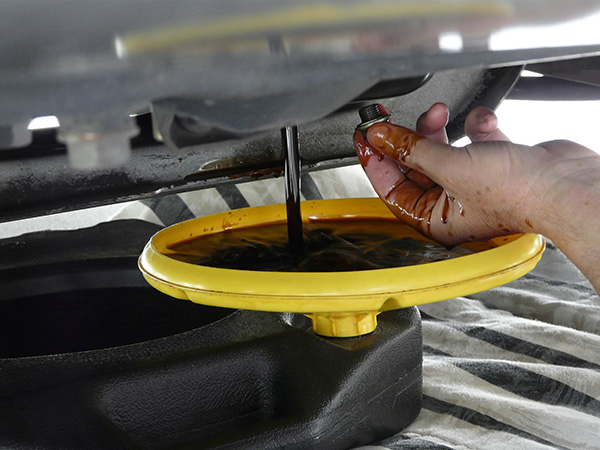
Maintaining your vehicle's health is crucial for ensuring its longevity and reliability, and one of the simplest yet most vital aspects of car maintenance is the regular oil change. You’ve probably heard it a thousand times: “Make sure you change your oil!” But why is it so important? Let’s explore why regular oil changes are critical for your car’s performance and what could happen if you skip this essential service.
What Does Engine Oil Actually Do?
Before diving into the importance of regular oil changes, it’s essential to understand the role engine oil plays in your vehicle. Engine oil acts as a lubricant for the various moving parts inside your engine. These components, such as pistons and valves, move at high speeds and generate significant heat due to friction. Without adequate lubrication, these parts would grind against each other, leading to excessive wear and tear.
Moreover, engine oil helps to cool the engine by absorbing and dissipating heat. It also plays a crucial role in keeping the engine clean by preventing sludge and dirt from accumulating in the engine’s internals. Over time, however, the oil can break down and become less effective, which is why regular oil changes are so important.
The Risks of Skipping Oil Changes
Putting off an oil change might be tempting, especially if your car seems to be running just fine. However, skipping oil changes can lead to many problems that could cost you far more than the price of regular maintenance.
Engine Wear and Tear
As oil ages, it loses its lubricating properties, meaning the engine components will start to experience more friction. This increased friction can cause premature wear and tear on the engine, leading to potential damage and the need for costly repairs.
Overheating
Old or low-quality oil is less effective at absorbing heat, which can cause your engine to overheat. Overheating can result in significant damage, including warped engine components or even a complete engine failure.
Reduced Fuel Efficiency
Fresh oil ensures that your engine runs smoothly, which in turn helps maintain optimal fuel efficiency. Dirty or old oil, on the other hand, can cause your engine to work harder, leading to increased fuel consumption and higher costs at the pump.
How Often Should You Change Your Oil?
The frequency of oil changes depends on several factors, including the type of vehicle you drive, your driving habits, and the type of oil used. The traditional rule of thumb was to change your oil every 3,000 miles or every three months, whichever came first. However, advances in engine technology and oil formulations mean that many modern vehicles can go 5,000, 7,500, or even 10,000 miles between oil changes.
Your best bet is to consult your vehicle’s owner’s manual or speak with a trusted automotive professional who can provide personalized advice based on your specific circumstances. It’s also worth noting that certain driving conditions, such as frequent short trips, heavy loads, or extreme temperatures, might require more frequent oil changes.
The Benefits of Regular Oil Changes
Sticking to a regular oil change schedule provides numerous benefits that can save you money and extend the life of your vehicle. Here’s why you shouldn’t neglect this simple but crucial task:
Prolongs Engine Life
Regular oil changes help prevent the buildup of harmful deposits and sludge in your engine. This keeps your engine running smoothly and reduces the risk of breakdowns, ultimately prolonging its life.
Improves Performance
Clean oil allows your engine to run more efficiently, improving overall performance. You’ll notice a smoother, quieter ride, and your engine won’t have to work as hard, which can reduce wear and tear.
Protects Your Warranty
Many vehicle warranties require you to follow the recommended maintenance schedule, including regular oil changes. Failing to do so could void your warranty, leaving you responsible for costly repairs.
Signs That You Need an Oil Change
While it’s best to stick to a regular oil change schedule, certain signs can indicate that your car is overdue for an oil change. Keep an eye out for these warning signs:
- Dirty Oil: Check your oil regularly using the dipstick. If the oil is dark and dirty, it’s time for a change.
- Engine Noise: If your engine starts making unusual noises, such as knocking or rumbling, it could be due to low or dirty oil.
- Oil Change Light: Many modern vehicles have an oil change light or indicator that will alert you when it’s time to change the oil.
Don’t wait for engine trouble to remind you about that overdue oil change. Head over to RM Automotive for quick and reliable service. We’ll help you keep your vehicle in top condition. Schedule your oil change today!